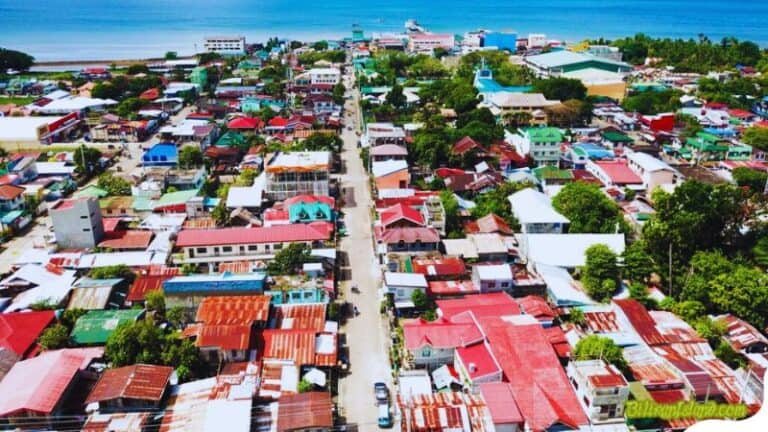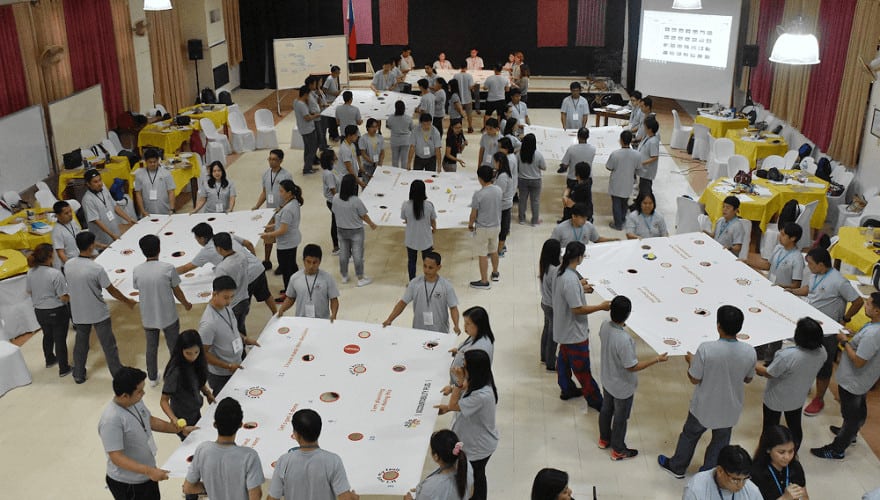The Punong Barangay, also known as the Barangay Chairperson, plays a vital role in local governance in the Philippines. There are barangays with populations larger than some towns in the Philippines. The largest barangay in the country has a population larger than 2/3 of the cities in the Philippines. Imagine yourself leading more than 200,000 people.
Of course, there are barangays with fewer than 5000 people.
But every barangay chairperson must be trained like an executive.
Consider this. A CEO of a company with 5000 employees gets training here and abroad. Their success depends on their leadership abilities. But the board can replace them anytime if they are not competent.
We don’t have this when it comes to incompetent barangay leaders. Recall elections are too expensive to remove them from office. And we know that even incompetent barangay leaders can stay in office for 9 years or more.
Of course, there are many great barangay leaders. We need to emulate them. We need to clone them. And one effective way is through capability building.
So, this article is for every barangay leader. I want to inspire them to seek training. I will describe some of the training programs they may need for them to lead better.
And I also write this for every governor and mayor. You will benefit much when you have excellent barangay chairpersons.
The Punong Barangay
These programs are based on the functions of barangay chairpersons. Likely, the DILG has already instituted some of them, if not all. However, I did not find any of these programs when I did an online search. Given that there are more than 42,000 barangays in the Philippines, I expected to see more.
Term of Office:
Serves a term of 3 years.
Eligible for a maximum of 3 consecutive terms.
Qualifications:
Must be a natural-born Filipino citizen.
A registered voter in the barangay.
Must have been an actual resident of the barangay for at least one year immediately preceding the election.
Able to read and write Filipino or any other local language or dialect.
At least 21 years of age on the day of the election.
Duties and Responsibilities:
- Enforcement of Ordinances: Ensure adherence to barangay ordinances and rules.
- Agreement Signing: Can sign agreements for the barangay with the approval of the barangay council.
- Maintaining Peace: Responsible for keeping peace within the barangay and supporting the city or town leader and council members.
- Meeting Leadership: Preside over barangay council and community meetings, casting a vote only in case of a tie.
- Appointments: Selects key barangay officials such as the secretary and treasurer, with the council’s approval.
- Emergency Response Team Leadership: Organize and lead a response team for emergencies, peace, and order, or during calamities.
- Budget Preparation: In coordination with the Barangay Development Council, prepare the annual executive and supplemental budgets of the barangay.
- Budget Approval: Has the authority to approve barangay budget expenditures.
- Environmental Protection: Ensures compliance with environmental safety and cleanliness regulations.
- Conflict Resolution: Assists in resolving neighborhood conflicts and disputes.
- Youth Council Oversight: Monitors the activities of the youth council (Sangguniang Kabataan).
- Community Welfare: Ensures the provision of basic needs to barangay residents.
- Sports Event Organization: Coordinates with the Department of Education to organize an annual sports event.
- General Welfare: Attends to the overall well-being of the barangay.
- Additional Responsibilities: Undertakes other duties as required by laws, barangay ordinances, and rules.
The Punong Barangay is the grassroots level political leader. He or she plays a crucial role in the administration and welfare of the barangay.
Empowering Barangay Chairpersons
Training for Punong Barangay, the local community leaders in the Philippines, is crucial for effective governance. These leaders handle a range of responsibilities, from enforcing laws to managing disasters and community development.
Training equips them with the necessary skills and knowledge to handle these diverse duties efficiently. Without proper training, they may struggle to meet the complex demands of their role, affecting the welfare and progress of their barangays.
The training needs to be relevant, focusing on real-world scenarios specific to barangay governance. This relevance ensures that the training addresses the actual challenges and situations these leaders face daily. It also helps them apply what they’ve learned directly to their work, making their actions more impactful and beneficial for their communities.
Immersive and practical training allows Punong Barangay to actively engage with the learning material. This hands-on approach fosters a deeper understanding and retention of information. It also allows them to practice skills in a controlled environment, building confidence and competence before applying these skills in their communities.
Practical training ensures they are ready to tackle real-life challenges effectively and efficiently.
Leadership and Governance Training
This training helps barangay chairpersons become better leaders. They learn about leading ethically, making good decisions, and working well with the community.
Good leadership builds trust and helps the community grow. When chairpersons lead better, they solve problems more effectively. They make things clearer and focus on what the community needs. This makes them stronger leaders.
Public Administration and Management
Chairpersons learn how to manage the barangay better in this program. It covers how to handle the barangay’s work, budget, money, and public policies.
Good management is key to running the barangay well. This training gives chairpersons the skills they need to use resources wisely and make sure policies work well.
They will lead better, ensuring that everything runs smoothly and services improve.
Legal Awareness Workshops
These workshops teach chairpersons about laws and rules they need to follow. They learn about ordinances, legal processes, and human rights.
Knowing the law helps them handle legal issues correctly, keeping the barangay safe and fair.
Chairpersons who understand the law well can lead with confidence. They become trusted leaders who look after the legal well-being of their community.
Community Development and Planning
Chairpersons learn how to plan and carry out community projects. They find out what the community needs and how to develop projects sustainably. They play a big role in improving the community.
With these skills, they can lead important projects that make life better for everyone. This strengthens their leadership and helps the community grow.
Disaster Preparedness and Emergency Response
This training prepares chairpersons for emergencies and disasters. They learn how to reduce risks, plan for emergencies, and manage crises.
Barangays often face disasters first, so trained chairpersons can respond quickly and protect the community.
This makes the community stronger and shows that the chairpersons are reliable leaders in tough times.
Environmental Management
Chairpersons learn how to take care of the environment, including managing waste and conserving nature. Environmental issues are very important in barangays.
This training helps them start projects that make the community cleaner and safer. Leaders who care for the environment show they are responsible and think about the future.
Health and Social Welfare Programs
This training covers health care, social welfare, and public health. Barangay leaders are important for health and social services.
They learn how to provide essential services and improve residents’ health and well-being. Good health and social programs make the community healthier and more supported.
Information and Communication Technology (ICT) Training
Chairpersons improve their computer and digital communication skills. In today’s world, these skills are necessary. They help make barangay work more modern, efficient, and open.
Better communication leads to more transparency and involvement from the community.
Conflict Resolution and Peacekeeping
They learn how to solve conflicts and keep peace. This training gives them the skills to handle disagreements and keep the community peaceful and united.
Leaders good at solving conflicts are seen as fair and effective.
Youth Development and Engagement
This program encourages young people to take part in community activities. It includes youth leadership and mentorship.
Getting young people involved is important for the community’s future.
Chairpersons learn how to involve youth in projects. They make the community more lively and inclusive. Leaders who work well with youth are forward-thinking and inclusive.
Financial Literacy and Fundraising
Chairpersons learn how to handle money better and find new funding sources. Knowing about finances is important for running the barangay. They learn how to make smart financial decisions and find more money for community projects.
Good financial management helps the whole community.
Cultural Sensitivity and Inclusivity Training
This training teaches chairpersons about respecting and managing cultural differences. Many barangays are diverse, and leaders need to be inclusive and understanding.
This makes the community more united and respectful.
Personal Development and Wellness
This focuses on the mental and emotional health of chairpersons, including stress management and balancing work and life.
A chairperson’s well-being affects their leadership. This training helps them lead more effectively and sets a good example for the community.
These training programs are vital for new barangay chairpersons. They equip them with the skills and knowledge needed to lead their communities effectively.
Mayors and governors who invest in these programs ensure stronger, more capable leadership at the barangay level. This results in better-managed and more resilient communities.
If you want Filipino values to show up as real behavior at work…
Let’s turn it into a culture shift experience.
→ Shift Experiences



